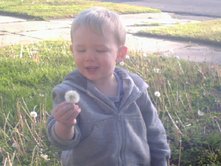
This is the sermon about curiosity I will preach at Avon Grove Church of the Nazarene, in PA next Sunday. Enjoy the pre-read.
I. Stories of Curiosity
Have you ever been curious?
I remember being curious—especially as a child.
I must have been around 8 years old. We lived in a house next to the woods.
The woods are always a great source to spur on creativity for kids. They are almost magical. As the sun streams down through the trees—it brings the forest to life. The spider webs glow in the sunlight and the rocks with glint glimmer.
Perhaps there is buried treasure in the woods!
Or perhaps there are clues in the woods—leading to an exciting adventure!
When I was a little girl—I was a combination of Sherlock Holmes the detective- meets Indiana Jones the adventurer- meets Laura Ingles Wilder the curious yet naive child. I know- odd combination. I was an odd child. J
But when my cousins came to visit us… the innocent, honorable, adorable Laura Ingles Wilder was put aside and Indiana Jones took over. I was ready for adventure! I wanted to swing through the trees in the woods until, like Sherlock Holmes, I discovered clues—leading to untold tales.
One particular day—my cousins and I were all quite CURIOUS to see what was waiting for us in the woods.
And even though I was warned of the poison ivy, potential bug bites, and sticks that could spring up and cut me—I was ready for investigation and further study into the unknown. I was CURIOUS to see what secret my woods held.
And so very gently we crept into the woods— we were a youthful team of explorers who would find something to change the world forever.
Our CURIOSITY was our guide. Anything could be waiting for us.
And then we found it.
The thing we set our hearts towards.
It was white. It looked porcelain.
It looked quite curious—although it was about an inch long.
It was probably the top to an old vase—but to us, the story of its life was boundless.
Perhaps this white section of china once was held in the hands of early settlers as they made their home in America (it was Thanksgiving time after all, and that story was fresh in our minds), and WE, the 8 year old team of archeologists, had found a piece of their story to be displayed in a museum.
Or perhaps this exciting piece of pottery was left in the woods by a thief while he escaping from the police—and WE, the team of 8 year old detectives, had found the missing link to save the town. We would surely receive medals for that.
Or perhaps this chunk of ceramic was owned by an elderly woman who left her estate to her family upon death—and the poor, mourning family had to sell all their memories of her to buy food to feed their family. Perhaps they longed for just one more piece of the memory—and WE, the team of 8 year old private investigators, had found the last sustaining heirloom for the family.
We were curious—and we were creative.
Our curiosity led us into the woods—and our curiosity for the unknown, kept our minds imaginative and creative.
Transition: I know someone else who was curious.
II. Retelling of Matthew 19:16-27
In Matthew 19 we see Jesus doing his “Good Teacher” thing. We see Jesus preaching. We hear Jesus announcing the Kingdom of God has come—when suddenly, a man approaches.
This man is wealthy. He’s a ruler.
Perhaps he has a beach house for summer breaks, a yacht he takes out on quiet peaceful days.
Perhaps he has a high speed internet and all the cable channels.
(Just seeing if you’re still listening).
So we see this rich guy come up to Jesus.
And he is curious. Quite curious!
He has a question for Jesus. “Teacher,” he asks. “What must I DO to HAVE eternal life?”
Now notice here—the man is quite concerned with doing—and having.
He wants something to DO—so he can HAVE more of what he wants—that is, to live forever.
And what does Jesus say?
Does he comment on either the “doing” or the “having?”
Nope.
Jesus talks about what is good.
Jesus changes it up. Jesus throws the rich guy a curve ball.
Jesus says, “Only God IS good.”
And we see the rich guy raising an eye brow, feeling even more curious with this odd response from the good teacher.
And so Jesus continues. “You want something to DO- follow the commandments.”
“Follow the commandments?” the rich guy asks. He gets even more curious and claims to have kept all the commandments. But- it’s just (sigh)- he feels like he needs to do more.
The rich guy feels like he’s still lacking—even though he kept all the commandments.
His heart feels empty, incomplete.
He came with curiosity to this teacher to figure out what he must DO to HAVE eternal life—and he already had the 10 commandments answer.
There has to be more! There has to be more to DO in order to inherit eternal life. There has to be something extra to DO!
And Jesus looks at the man with great compassion.
I can just see Jesus’ face softening as he looks at the man in torment- with a smile of love.
And Jesus gently says,
“If you want to be perfect, sell everything you have and give it to the poor—this is how you BECOME beautiful—this is how you participate in the renewal of ALL things.”
And here we are again. Jesus is changing it up again.
The rich man wants to know what to DO—and Jesus shows him who he can BECOME through participation in the renewal of all things.
There’s quite a difference.
Do you catch the difference between DOING and BEING?
You can HAVE a button on your shirt—but you can’t BECOME a button.
You can HAVE a donut for breakfast—but you don’t want to cover yourself in glaze and roll around to BECOME a donut.
You can HAVE a baseball in your hands to twist around—but you don’t want to BECOME a baseball.
But Jesus talks NOT about HAVING the Kingdom of God but BECOMING the Kingdom of God here and now—and suggests the man does it by selling all he has and giving to the poor.
And the rich man’s head hangs.
His eyes gently close.
He sighs.
And as his dark eyes look up at the good teacher he blinks—turning away in great grief.
Wow. What a story.
Transition: We can learn a lot from the curiosity and questions of the Rich Young Ruler.
III. First, we learn: Jesus loves our curious questions.
Jesus loves curiosity! So…
COME WITH QUESTIONS AND CURIOUSITY
—BUT EXPECT TO BE SHOCKED
Since Jesus has a tendency to change things up, shake up our questions.
Look at all the times Jesus changes things up in this passage alone:
1. The rich guy says, what must I do? And Jesus does not answer that question—he talks about what is good.
Nice change up, Jesus.
2. Then the rich guy wants to know what he lacks—and Jesus does not deal with that—he talks about giving up everything to become someone who is beautiful.
Excellent modification, Jesus.
3. Then when the rich guy walks away the disciples want to know who can be saved—and Jesus changes that up too! He says, you don’t save. Only God saves.
Wow, yet another great amendment, Jesus.
Jesus is always taking our questions and curiosity and changing it up!
So we must learn—when we come with curiosity (which is a great thing, to be curious about our Jesus)— we must come expecting to be shocked.
For—listen to this. In changing it up on us—by modifying the answer—and by amending our question—Jesus reveals to us something very powerful. Something amazing.
Jesus teaches us: Usually the questions we ask reveal we are focused on something other than what Jesus wants us to be focused on.
IV. And thus second, we learn: Jesus shows us we often are not asking the right questions.
So-- COME WITH QUESTIONS AND CURIOUSITY
—TO LEARN ABOUT BECOMING NEW AND BEING TRANSFORMED
All too often we come expecting a formula or prescription. We come asking the wrong questions. We ask questions about what to DO, just like the rich young ruler.
And Jesus tells us the Kingdom of God is so much more.
The Kingdom of God is about BECOMING who we were created to be “in the renewal of all things,” as it is phrased in this passage.
Scientists may design formulas to make products or medicines.
Mathematicians may create formulas for statistics.
Chefs and cooks might develop formulas for a world famous soufflé.
But our curiosity’s questions for Jesus are not answered with a formula as they are with scientists, mathematicians or chefs.
The Kingdom of God is not a list of things to DO or HAVE. It’s about who we are becoming.
There is no formula.
You do not DO “A” plus “B” and hope “C” is a full, correct list of things to DO in order to inherit eternal life.
Many a famous scholar, teachers, pastors, and speakers might come up with great formulas for what we must DO – but Jesus teaches us something else.
Jesus changes it up. It’s not about what we DO or HAVE. It’s about who we are BECOMING—how we are transformed to become who we were created to BE.
For so long as a young person—I searched for the right thing to DO, much like the rich young ruler.
I can remember sitting in service after service—wondering what in the world I needed to do.
If I could just figure out what to DO—I’d do it!
But Jesus was gently teaching me—in the same way he taught this rich young ruler—it’s not about what you DO.
There’s a big difference between DOING and BEING.
Who you are becoming is so much more important—holds so much more weight than doing a long list of the “right things.”
Friends, it’s not about a long list of things to DO.
It’s about the transformation of who you ARE and who you are becoming—for this changes what you do.
Let me say that again—
Friends, it’s not about a long list of things to DO.
It’s about the transformation of who you ARE—and who you are BECOMING—for this changes what you DO.
The transformation of who you ARE changes what you DO. Did you catch that?
Did you see how I changed it up—just like Jesus did for this rich young ruler?
We often ask questions of what to do—and Jesus says, “ah dear friends—participate in the redemption of creation by BEING who I created you to be! Choose what I want!”
As this scripture passage says- it is about the “renewal of all things.”
The renewal of all things!
This is beautiful!
God has a plan for the renewal of all things—the restoration of creation!
V. And thus, finally, we learn: We can get excited and develop a passion for even more curiosity and thinking about what Jesus says.
For we can: COME WITH QUESTIONS AND CURIOSITY—AND GET EXCITED. THIS IS FUN!
Come and see God’s beautiful plan for the redemption and renewal of creation! It is thrilling! It is beyond our expectations.
We get to be surprised!
We get to see how our little lives get caught up in God’s plan.
This is salvation! (Hauerwas and Willimon, “Lord Teach Us to Pray”).
Holiness is one of the most exciting things ever.
It is something to be curious about—to find that child-like curiosity and discover things we never saw before.
Holiness is fun—because we never have it all together.
What joy would we get out of a vacation if we already knew everything that would happen?
What fun would it be to go to a thrift store—if we already knew what was there?
What thrill would there be in going to a sporting event—if we knew how every play would turn out?
The discovery is- the fun!
And holiness—is about a discovery—learning, growing—and participating in the renewal of creation! Holiness is fun--because we never know it all. We get to be curious-- we get to discover.
VI. Conclusion:
Therefore, friends—come with curiosity to Jesus!
Come with curiosity-but expect to be shocked.
Come with curiosity- to learn about becoming new and transformed.
Come with curiosity- and get excited. This is fun!
This is an adventure—something to be inquisitive and CURIOUS about as we encounter the one whom loves, gives hope—and in whom we have faith.
Let’s pray together today:
VII. Prayer:
Lord God, we are so excited for the exciting beauty of your plan.
We want our little lives to get caught up in your vision for the redemption of creation and the renewal of all things.
Give us the passion for discovery.
Grant us the vision for who we might become.
Remind us—our questions of “doing” simply reveal our focus on ourselves and what we want—over what you want for us—to become the kinds of people who do and act because of who we are and who we are becoming.
So often we barely know who we are- let alone whose we are.
Remind us we are yours.
And thus we are the kinds of people who act differently because of whose we are.
And we are a unique and beautiful community—your church.
Make us who you created us to be.
Develop within us a curiosity to see your vision.
Create in us the eyes to see and the hearts to transform the world.
We love you, Lord.
Amen.






















